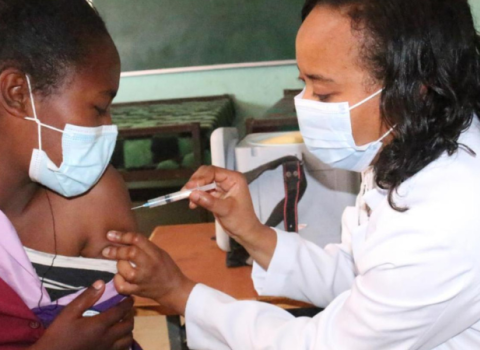Research commissioned by lobby group EFPIA shows Germany, Belgium and France will be among those hit hardest if the Commission’s proposals go ahead. In total, R&D would be cut by €2B per annum

The European Federation of Pharmaceutical Industries and Associations (EFPIA) is keeping up the pressure over the Commission’s pharmaceutical legislation, publishing a new assessment in which it concludes the draft proposals would hasten the existing trend which has seen Europe’s position in pharma R&D investment deteriorate in comparison to the US, China and Japan.
The science base in almost all member states would be affected, with Germany set to be hit hardest, losing around €626 million every year. Belgium would miss out on R&D projects worth €381million and France €326 million.
The data shows that the Commission’s proposals to reduce regulatory data protection which EFPIA says is, “a vital component of intellectual property, for a large number of breakthrough medicines,” will reduce the incentive for companies to invest in this type of drug by 55% in Europe over the next 15 years.
This translates into “a significant impact on European innovation and competitiveness,” EFPIA says, with the Commission proposals expected to escalate a trend which has already seen Europe lose a quarter of its global R&D investment in the last 20 years.
Unless the proposals change, Europe’s share of global R&D investment is predicted to further reduce by a third, from 32% of global R&D expenditure, to 21% by 2040. That equates to €2 billion in lost R&D investments each year.
Overall, one in five drug development programmes that depend on regulatory data protection would no longer be economically viable in Europe. That means development of around 50 out of 225 expected new treatments would be foregone over the next 15 years.
Biotech SMEs would be most impacted by the proposals, worsening a situation which is already seeing Europe’s biotech base move to the more predictable financial ecosystems in the US and China.
The European Commission is also proposing to change the incentives for orphan drugs, which EFPIA says will disproportionately hit research for the 1.5 million patients with a rare disease, leading to loss of 45 orphan drug programmes.
Additional EFPIA research suggests that proposed tightening of the definition of ‘unmet medical need’ means that only 18% of recently developed products would meet the criteria, with a heavy impact felt in areas including cardiovascular disease, diabetes and HIV.
In 2010, Europe accounted for 37% of global R&D; by 2020 that had dropped to 32%. This latest research suggests this will fall to 25% by 2030, and by 2040 to just 21% of research and development activity compared with the other regions. Meanwhile, China’s contribution is expected to leap from 2% in 2010 to 17% in 2040.





 A unique international forum for public research organisations and companies to connect their external engagement with strategic interests around their R&D system.
A unique international forum for public research organisations and companies to connect their external engagement with strategic interests around their R&D system.